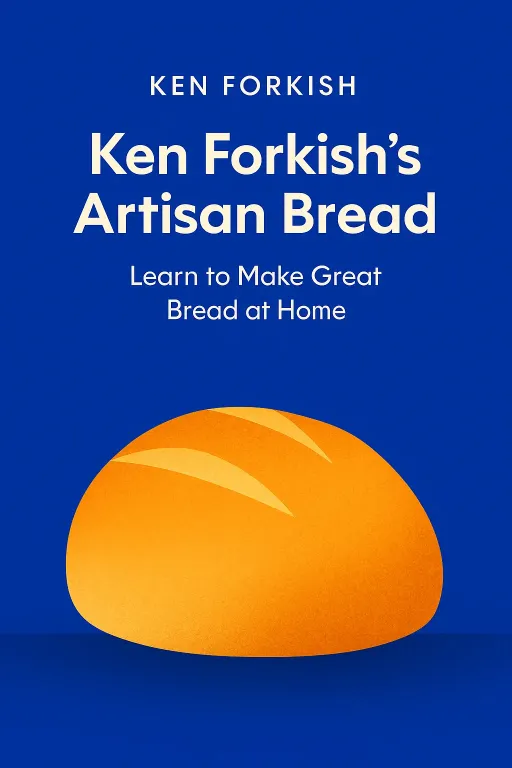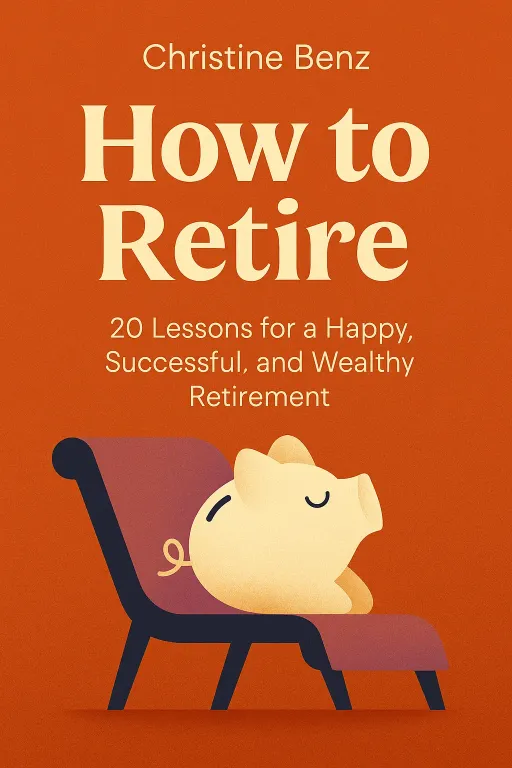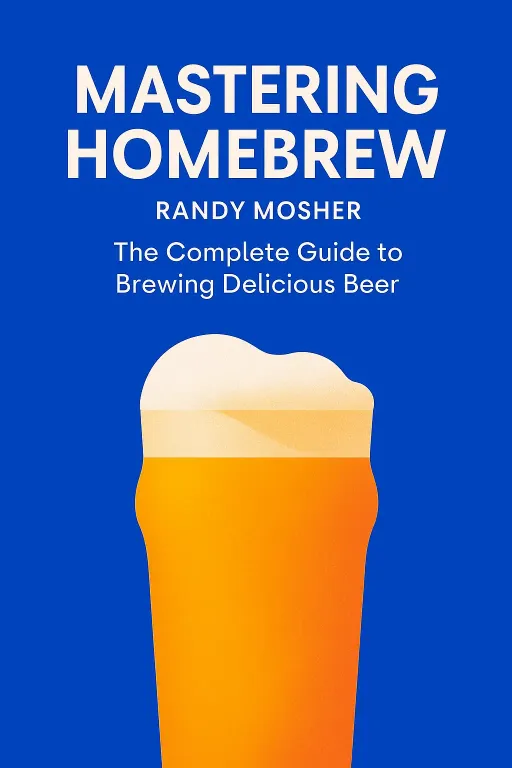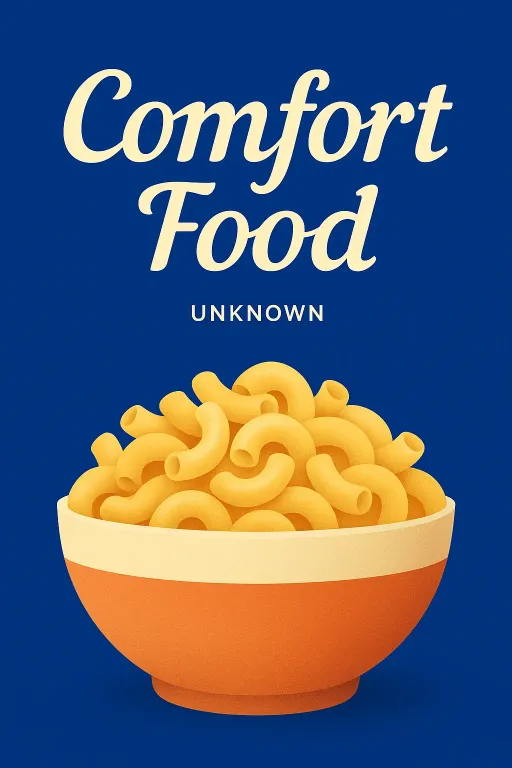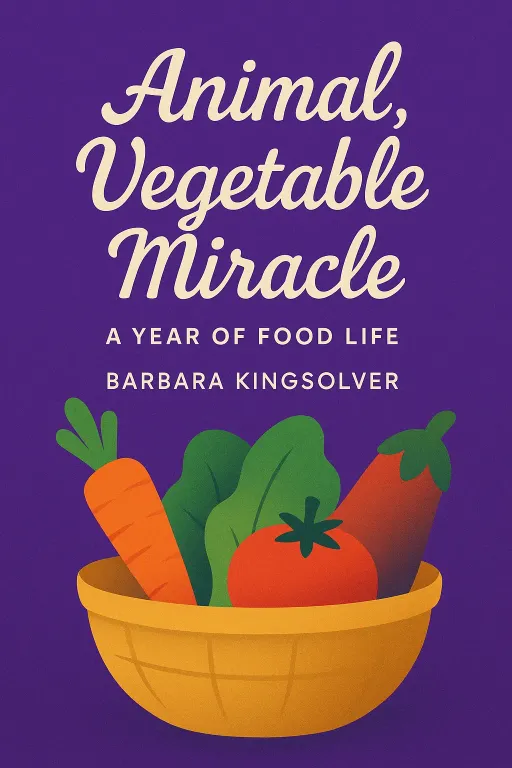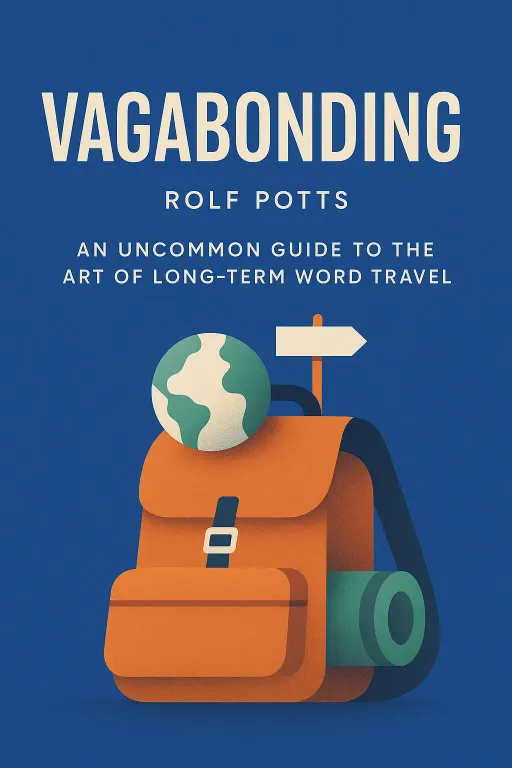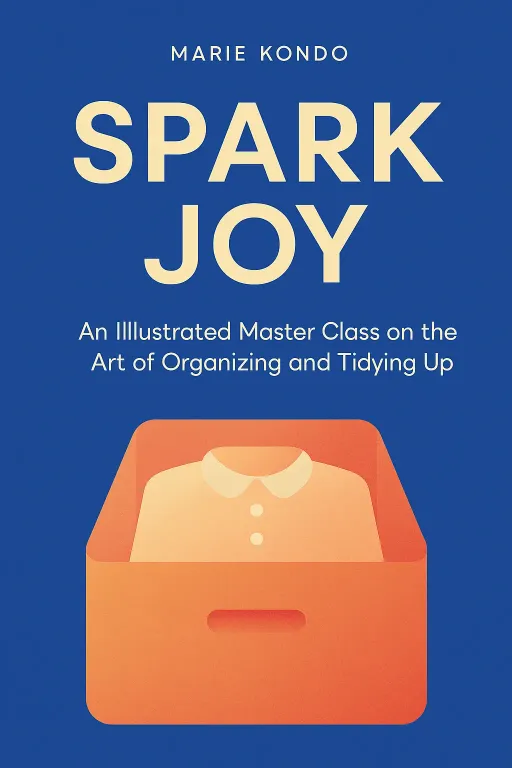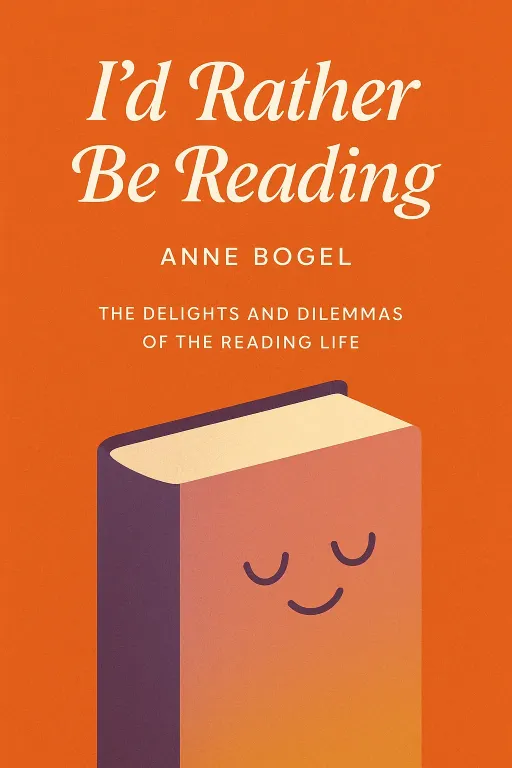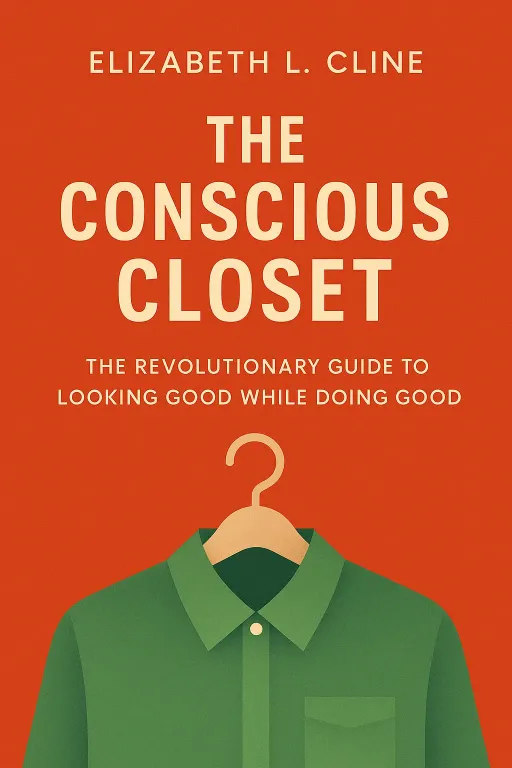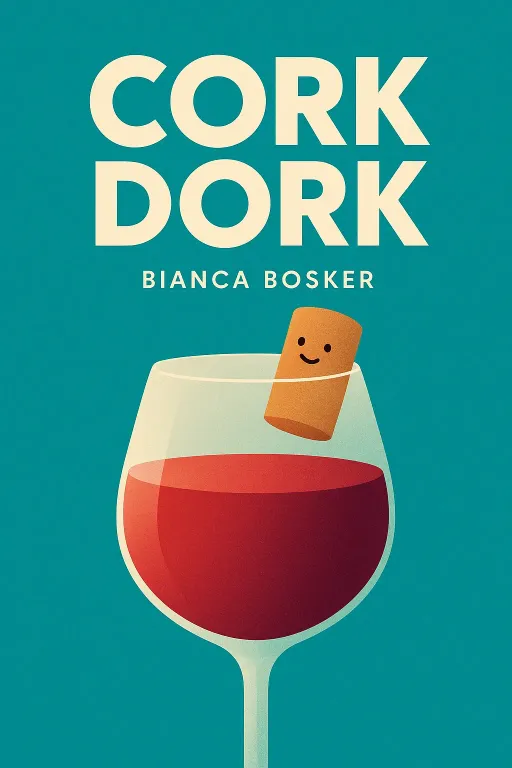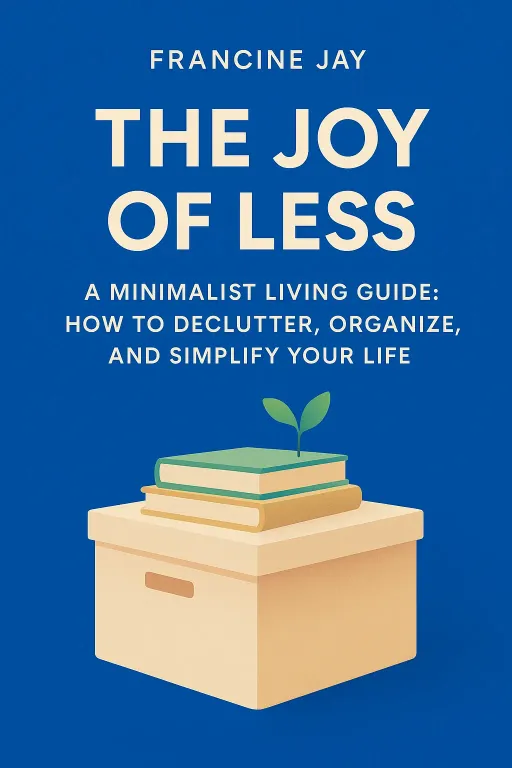
Let Your House Breathe
12 minA Minimalist Living Guide: How to Declutter, Organize, and Simplify Your Life
Golden Hook & Introduction
SECTION
Rachel: Okay, Justine. You've read the book. Give me your five-word review. Justine: My stuff owns me, help! Rachel: Ha! Perfect. Mine is: Your house can finally breathe. Justine: I like that. It sounds a lot less stressful than my version. And honestly, after reading this, I feel like my entire apartment is holding its breath, waiting for me to do something. Rachel: And that feeling of 'breathing room' is exactly what Francine Jay is getting at in her book, The Joy of Less. It’s this idea that our homes, and by extension our lives, are suffocating under the weight of things we don't even realize we're carrying. Justine: It’s a hugely popular book. I’ve seen it everywhere for years, and it has this reputation for being one of the foundational texts of the modern minimalist movement. Rachel: It absolutely is. And what's incredible is that Jay isn't just an armchair philosopher. She and her husband literally sold everything they owned—their house, their car, all of it—and spent three years traveling the world with just one suitcase each. She has lived this at the most extreme level. Justine: Wow, okay, so she's the real deal. That’s not just tidying up your closet, that’s a complete life overhaul. That makes me wonder, though. Is this book just for extreme minimalists who want to live out of a backpack, or is there something in it for the rest of us who are just, you know, drowning in Tupperware and old cables?
The Philosophy of Less: Redefining Your Relationship with Stuff
SECTION
Rachel: That is the perfect question, because the first and most important part of the book has nothing to do with throwing things away. It's all about philosophy. Jay argues that you can't successfully declutter your home until you first declutter your mind. You have to change your entire relationship with 'stuff.' Justine: Okay, I’m intrigued. What does a 'decluttered mind' even look like in this context? Does it mean I stop wanting a new pair of sneakers? Rachel: It’s more about understanding why you want them. Jay has this fantastic metaphor that I can't get out of my head. She says, "Think of it this way: a container is most valuable when it’s empty." Our homes are containers. If they're already overflowing, there's no room for anything new—not just new things, but new experiences, new ideas, new peace. Justine: Huh. A container is most valuable when it’s empty. I’ve always thought of empty space as a vacuum that needs to be filled. An empty wall needs a picture, an empty shelf needs books. The idea that the emptiness itself has value is… pretty counter-cultural. Rachel: Exactly. We’re trained by society to see empty space and feel a need to consume, to fill it. Jay’s work is a direct challenge to that. And this isn't just a feeling; it has a real biological impact. There was a fascinating study done by UCLA's Center on Everyday Lives and Families. They found that women who described their homes as 'cluttered' had significantly higher levels of the stress hormone cortisol throughout the day. Your clutter is literally stressing you out. Justine: I one hundred percent believe that. I can feel my shoulders tense up just looking at the pile of mail on my counter. The book mentions a story about a woman named Sarah, a marketing manager in New Jersey, that felt so real to me. Rachel: The Overwhelmed Homeowner. It's a perfect illustration. Here’s this woman, Sarah, with a nice suburban house, a family, a good job. By all external measures, she's successful. But internally, she's miserable. Her house is so full of stuff—gifts, impulse buys, inherited items, kids' projects—that she feels anxious and drained all the time. She can't relax, she can't focus. The 'stuff' that was supposed to represent a happy life was actually stealing her happiness. Justine: And she was in credit card debt from buying it all! It’s a vicious cycle. You feel stressed, so you buy something for a little dopamine hit, which adds to the clutter, which adds to the stress. It’s a treadmill. Rachel: Precisely. For Sarah, the breaking point was finding a box of old mementos and feeling nothing but resentment at having to manage it all. That’s when she discovered minimalism. And the first thing she did wasn't to rent a dumpster; it was to change her mindset. Justine: Okay, but this is the part I struggle with. The book says, "become detached from your stuff." That sounds so cold, almost robotic. How do you do that without feeling like you're just throwing away your life, your memories? My grandmother’s weird ceramic cat might be ugly, but it’s my grandmother’s weird, ugly ceramic cat. Rachel: I get that. It sounds harsh. But Jay reframes it with a really powerful thought experiment. Imagine it's the middle of the night and a fire alarm goes off. You have sixty seconds to get your family and pets out. What do you grab? Justine: My laptop, my phone, and my dog. That’s it. Maybe my wallet if I’m thinking clearly. Rachel: Exactly. You’re not grabbing the ceramic cat, or the clothes you might wear someday, or the box of old birthday cards. In a true crisis, you instinctively know what matters. And it's almost never the 'stuff.' The memories of your grandmother aren't in the cat; they're in you. The cat is just an object that triggers the memory. Jay's point is that we can learn to access those memories without needing a house full of physical triggers. Justine: That’s a jolt of perspective. The fire alarm test. It puts everything on a different level of importance. You’re not just asking, "Does this spark joy?" You’re asking, "In the grand scheme of my life, does this object actually matter?" Rachel: And once you have that mental shift, which is genuinely the hardest part, you’re ready for the practical side. You’re ready for the system.
The STREAMLINE Method: A Practical System for Lasting Change
SECTION
Justine: Which is great, because philosophy is nice, but I need a battle plan. My apartment looks like a thrift store exploded. Rachel: (Laughs) Well, Francine Jay gives you one. It’s an acronym called STREAMLINE. It’s a ten-step toolkit for decluttering that’s designed to be sustainable, not a crash diet where you just gain all the clutter back. Justine: STREAMLINE. Okay, I’m listening. Don't list all ten, but give me the greatest hits. What are the game-changers in this system? Rachel: The first one, 'S', is "Start Over." And it's brilliant. Instead of looking at a cluttered room and trying to decide what to get rid of, you do the opposite. You take everything out of a small, defined space—like one bookshelf, or one kitchen drawer. You empty it completely. Justine: Oh, I like that. It’s like hitting the reset button on that little corner of your world. Rachel: Exactly. The book tells this great story, "Moving Day Revisited." Remember that feeling when you first move into a new place? It's empty, full of potential, a clean slate. You plan to unpack methodically. But then life happens—you have to start a new job, the kids need to get to school—and you just start shoving things into closets to deal with later. Justine: And 'later' never comes. It’s been 'later' for a box of my college textbooks for a decade now. Rachel: We all have that box! The "Start Over" technique lets you recreate that moving day feeling, one small area at a time. When you pull that broken chair out of the corner it’s lived in for five years and see it in the bright light of your backyard, you suddenly see it for what it is: junk. Not a family member. It’s easier to let go. The book puts it perfectly: "Decluttering is infinitely easier when you think of it as deciding what to keep, rather than deciding what to throw away." Justine: That is a powerful mindset shift. You’re curating your life, not just taking out the trash. Okay, what’s another big one from STREAMLINE? Rachel: My favorite is 'R' for "Reason for each item." This is where you have to justify everything you decide to put back into that empty space. And this is where it gets fun, because Jay suggests you recruit an objective friend to help you. Justine: Oh no. I can see where this is going. Rachel: The book gives this hilarious example. You're holding up a feather boa. Your friend asks why you're keeping it. And you, with a straight face, have to say, "Well, I might need it if I decide to moonlight as a cabaret singer." Justine: (Laughing) And the moment you say it out loud, you hear how absolutely ridiculous it is. You need a 'stuff-lawyer' to make you justify your junk! That's brilliant. It forces you to confront the absurd fantasies you’ve attached to your possessions. Rachel: It’s the ultimate reality check. You are not what you own, and you’re probably not going to become a cabaret singer. Let the boa go. It’s about making sure every item in your home is either useful, beautiful to you, or holds genuine, deep emotional value—not just 'aspirational' value. Justine: I can see how that would be tough but effective. What about preventing the clutter from coming back? Because that’s my real problem. I can spend a whole weekend cleaning out my closet, and a month later, it’s chaos again. Rachel: That’s where the last few letters of STREAMLINE come in, and they are all about maintenance. 'L' is for "Limits." You decide that you will only own as many coffee mugs as can fit on one shelf. When the shelf is full, the limit is reached. No more mugs. Justine: A physical boundary. I like that. It’s not an abstract goal; it’s a real, visible line. Rachel: And it pairs perfectly with 'I' for "If one comes in, one goes out." This is the golden rule. You buy a new sweater, an old one has to be donated. You get a new book, one has to leave the shelf. Justine: It’s like a velvet rope policy for your house. A strict one-in, one-out bouncer at the door. It stops the problem at the source. It’s not a one-time purge; it’s a permanent change in how you live. Rachel: That's the whole point. It’s a lifestyle, not a project. Some readers have found this part a bit prescriptive, even preachy. But the author’s perspective is that these aren't rigid punishments; they are systems that grant you freedom. You no longer have to make a thousand tiny decisions every day about where to put things or what to do with new stuff, because the system is already in place.
Synthesis & Takeaways
SECTION
Justine: It’s fascinating how it all connects. You start with this big, philosophical idea of detaching your identity from your things, and you end with this very practical, almost mathematical rule of 'one in, one out.' So when you boil it all down, what's the one thing people get most wrong about this whole minimalism thing? Rachel: They think it's about deprivation. They see an empty-looking room in a magazine and think, "I could never live like that, it's so sterile and joyless." But Jay's whole point, and the core of this book, is that it's about intentionality. It’s not about what you lose; it’s about what you gain. You lose the clutter, but you gain time, financial freedom, and mental clarity. Justine: You gain the 'breathing room' you talked about at the beginning. The space to actually live your life instead of just managing your possessions. Rachel: Exactly. There's a quote at the end of the book that sums it all up beautifully. She says, "Most importantly, we redefine ourselves: by what we do, how we think, and who we love, rather than what we buy." That’s the real joy of less. It’s the freedom to be yourself, without all the stuff getting in the way. Justine: That’s powerful. It makes the whole process feel less like a chore and more like an act of self-discovery. Rachel: It is. And for anyone listening who feels overwhelmed and doesn't know where to begin, the book offers the simplest starting point. Don't try to tackle a whole room or even a closet. Just start with one drawer. Justine: One drawer. That feels manageable. Rachel: Pick the messiest drawer in your house. Your junk drawer. Use the "Start Over" technique—dump it all out, and only put back what has a real reason to be there. It might take you ten minutes. But just see how it feels to have one small, perfectly ordered, intentional space in your home. Justine: I love that. A tiny victory. And if you do it, tell us what you found! I’m genuinely curious about what’s in people’s junk drawers. We'd love to hear your 'one drawer' stories. Find us on our socials and share. Rachel: It’s a small step, but it’s the beginning of getting your space, and your life, back. Justine: This is Aibrary, signing off.
